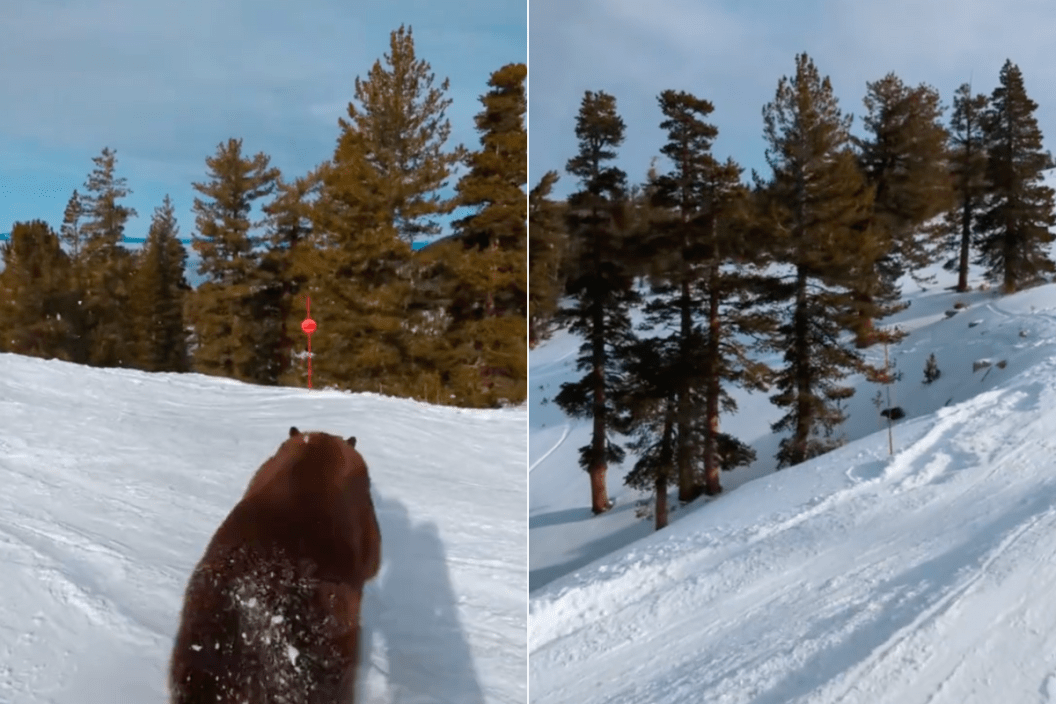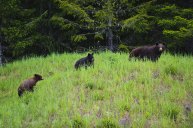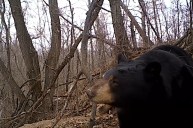Imagine this: You're flying downhill on fresh powder, having the time of your life on the slopes, when a massive, brown blur comes charging in front of your skis. There's no time to stop and no room for error.
That heart-stopping scenario was a recent Lake Tahoe skier's reality. A young black bear charged across the slopes, narrowly avoiding a collision with skiers. TikTok user tao7570 shared the harrowing video with TikTokverse, leaving people wondering, "Why did the bear cross the slopes?"
@tao7570 Almost hit a bear skiing down ridgerun Heavenly. Didn't realize it was a bear until it was too close #Tahoe #LakeTahoe #tahoelife #travel #heavenly #ski #bear #wildanimals
From the video, it looks like it was just bad timing. The young bear waits for quite some time on the side of the ski run. He sees what he thinks is an opening and hauls his furry behind across the mountain, running extremely fast. Despite its best timing efforts and speed, the bear nearly collides with Tao.
Tao told ABC10 he was lucky to have such a narrow miss with the bear. The silver lining was seeing the young bear reunite with its mother, who had been waiting in the trees. Viewers can see the pair meet up about 12 seconds into the video before they mosey off into the forest together.
The comments on the video were filled with bear puns and jokes. One TikTok user even said they saw a bear on a run at Northstar. But a few users commented that they thought bears should be hibernating by now, asking, "Did not he get the memo??"
Bears typically go into hibernation around November and stay in their dens until March, according to the U.S. Forest Service. However, officials say that bears are not true hibernators. "Hibernation refers to a state characterized by low body temperature, slow breathing, and heart rate, and slow metabolic rate," the Forest Service wrote on their Tahoe bear site. "Although a bear's body temperature will drop slightly in the den, they can be aroused easily. They require shelter from the wind and cold to avoid disruption of their sleep."
Tahoe bears are well-known for breaking into homes, cars, and even convenience stores, searching for food ahead of hibernation. However, the habit can become deadly when they choose that lifestyle over winter hibernation.
"As natural food supplies continue to dwindle and snow gradually blankets the Tahoe Basin, bears should naturally go into hibernation to save energy and resources," Peter Tira, the California Department of Fish and Wildlife spokesperson, told ABC10. "However, bears that continue to find and access unnatural, human-provided food sources like garbage, bird feeders, pet food, and other human attractants may bypass it altogether and stay active through the winter. This can create a reliance on human food that can be harmful for bears."
READ MORE: How to Identify Bear Scat from Black Bears or Grizzly Bears




